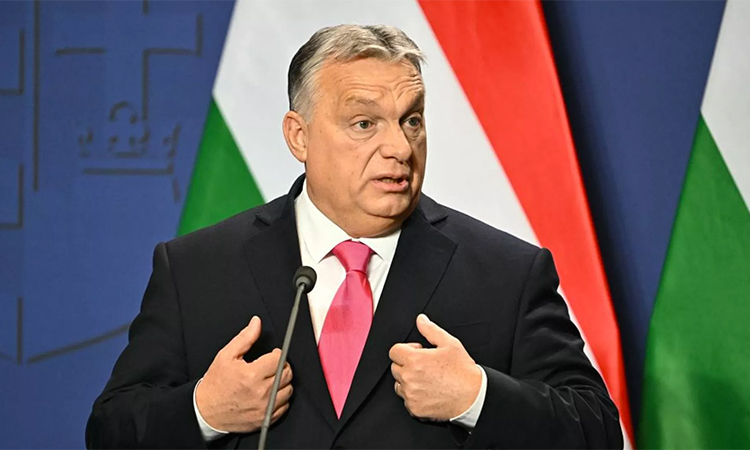Argentina’s Javier Milei’s “Instant Democracy” and Neoliberalism

Javier Milei, YouTube screen grab.
Self-described “anarcho-capitalist,” Javier Milei became the president of Argentina in December 2023 promising “drastic” measures to temper the inflation crisis that has gripped the country. In the weeks since his election, Milei has brought forward an ambitious neoliberal restructuring program encompassing almost every aspect of the government.
Milei’s agenda confronts considerable opposition in Congress, where his governing coalition, Libertad Avanza, holds only a fraction of the seats. To adjust to these circumstances, Milei has cultivated a strategy of “turbo-politics,” bypassing legislative processes that risk delaying the implementation of his state reorganization plans.
Milei’s approach to Congress is symbolic of a decades-old strategy I have elsewhere called “neoliberal parliamentarism.” This concept describes a pattern of deliberate efforts to reform or subvert legislative institutions as a means of facilitating neoliberal reforms that do not have sufficient popular support to be actualized through usual democratic channels. These changes, even when temporary, often leave long-term scars on institutions by weakening norms of institutional forbearance.
The Emergency Decree and the Omnibus Bill
Milei has followed this blueprint, insulating the core elements of his agenda from democratic influence. The dismantling of the Argentine state began in earnest in mid-December when the executive branch presented an 83 page Necessity and Urgency Decree (NDU) aimed at repealing over 300 various laws and regulations, facilitating the privatization of core public assets.
This “mega-decree,” Milei claimed, was necessary to “start to undo the huge number of regulations that have held back and prevented economic growth”. It includes sweeping economic deregulation, such as the elimination of regulations on Argentina’s supermarket laws, which required the guarantee of low prices on basic products. It also includes measures to eliminate rent controls. Suggested labour reforms to cut pregnancy leave and increase the job probation period were suspended by the courts in January 2024.
Less than a week after issuing the NDU, the executive branch sent a massive omnibus bill titled Foundations and Starting Points for the Freedom of the Argentine People to Congress for consideration. The bill bundles the major elements of Milei’s neoliberal restructuring initiatives under the heading of a single piece of legislation with 664 articles. It will enable the government to carry out, in a matter of weeks, what would normally take years to achieve if these reforms were considered independently and subjected to the usual legislative scrutiny.
Reforms from the 351 page bill include an extraordinary provision declaring a state of public emergency on matters related to the economy, fiscal balance, social security, defence, health, and administration.
The emergency declaration delegates more than 1,000 extraordinary powers from the legislative to the executive until December 31, 2025, with the possibility of a two-year extension. This provision would enable Milei to make major reforms without having to consult Congress, thus eliminating a major hurdle to the implementation of neoliberal reforms.
Authors of the bill are attempting to facilitate the privatization of 41 state-owned companies across various sectors including energy, aviation, port administration, and agriculture. They also enable the reorganization of public administration, including embedding regulatory cuts from the NDU into law.
Additionally, the omnibus legislation proposes substantial reforms to environmental protection laws. These changes include the weakening of the Glacier Protection Law, allowing the mining of sensitive “periglacial” areas. The bill is presently being rushed through the legislative process by way of Extraordinary sessions of Congress, leading to marathon sittings during Argentina’s usual summer recess period.
“It’s impossible for people to have an idea of the enormous number of proposals Milei has sent,” said Ricardo Gil Laverda, a constitutional lawyer and former Argentine Justice Minister. “They cover dozens and dozens and dozens of laws, often on deep topics.”
To influence negotiations, Milei has threatened to put forward a non-binding referendum if the opposition parties do not agree to the main terms of his restructuring plan. Milei has also threatened to take away social welfare rights from protesters who block streets.
Despite these efforts, however, the reality of Milei’s lack of Congressional support has led him to compromise on some elements of his agenda as it makes its way through the legislative process. Although the structure of the bill remains, opposition politicians have made more than 100 changes to it, including curtailing the scope of the President’s emergency powers to one year rather than two, and retaining YPF, the national oil and gas company, in public hands, despite allowing most other state-owned companies to remain subject to privatization.
Neoliberalism and the Decline of the Legislature
Argentina is not unique. This most recent example of legislative subversion is a familiar tactic used to accommodate neoliberal restructuring, that has been utilized repeatedly by neoliberal reformers in recent decades, including the IMF-sanctioned omnibus bill rammed through Greece’s parliament in 2014.
This approach to the legislature is the consequence of the political limitations of neoliberal policy, which is opposed by considerable segments of society. A blueprint for this strategy is spelled out by former New Zealand Minister of Finance Roger Douglas in his 1993 book, Unfinished Business. The book recalls lessons from his experience implementing a neoliberal agenda dubbed ‘Rogernomics’ in the 1980s against the headwinds of widespread social and political opposition.
Douglas claimed it is “uncertainty, not speed, that endangers the success of structural reform programmes.” Neoliberal reforms should not be passed incrementally, but as a rupture, moving in “quantum leaps” to overcome popular opposition.
Democratic processes are typically slow and deliberate, designed to enable the legislative body to scrutinize the executive, foster compromise, and encourage debate. It was necessary, therefore, to streamline the democratic process to ensure that politicians could neither interfere with, nor demand meaningful changes to, neoliberal reorganization efforts.
Neoliberal governments should confront the legislature, not as an essential element of the process of democracy, but an instrument used by politicians and vested interests to interfere with the operations of the marketplace. “Speed is essential. It is almost impossible to go too fast,” Douglas said. “Once the programme begins to be implemented, don’t stop until you have completed it.”
This tactic did not occur in a vacuum, but emerged intrinsically from the content of a neoliberal theoretical framework that views democratic institutions as an additional layer of state administration to be overcome. Neoliberal thought is deeply skeptical in the capabilities of reason to infer or predict causality. Given the limitations of the mind, society should be governed, not by conscious modelling and careful planning, but according to spontaneous or “invisible hand” forms of social organization, which are the outcome of independent, unplanned individual decisions.
This position is most clearly expressed by Friedrich Hayek, who claimed that parliamentary sovereignty was in fact the “root of the evil” in modern society, since it facilitated the growth of the state. Legislatures constituted one limb of what Milton Friedman called the “iron triangle” of politicians, bureaucrats, as well as corporate and individual special interests that were perpetually reliant upon the government for rents, and therefore had an interest in obstructing market reforms.
‘Instant Democracy’ and the Rise of ‘Neoliberal Populism’
What should we make of Milei’s approach to Congress, then? Is it reflective of a new pattern in neoliberal governance, or merely the extension of an old one? The answer is both. While Milei’s approach clearly shares categorial similarities with the neoliberal legislative blueprint built for speed, his blending of these ideas with a coarse, populist rhetoric grounded in anti-statism, signifies an intensification of these patterns.
Milei’s populist neoliberal worldview contributes to a rising trend among far-right governments around the world to use this rhetoric to rationalize the subversion of democracy. This kind of “neoliberal populism” conflates democratic institutions with political actors, claiming that they are instruments of obstruction for self-serving politicians and bureaucrats.
This is a view Milei has proudly declared. “For me, the state is an enemy, as are the politicians who live off it,” he said. “We will put an end to the parasitic, stupid, useless political caste that is sinking this country.”
Grounded in the same logic as neoliberalism’s conventional demand for freedom from the state, democratic institutions increasingly appear as impediments to the logic of the marketplace. The elimination of cumbersome legislative processes, then, removes the obstacles that restrain market forces, generating popular economic independence, and restoring common-sense. This inverts the logic of democracy, making it appear as though executive rule is necessary to protect the interests of “the People” from Friedman’s “iron triangle.”
The anti-parliamentarism at the core of the neoliberal theoretical outlook has increasingly transformed into a populist program that mobilizes a general dissatisfaction with politicians against democratic institutions as such. Neoliberal politicians, such as Milei, use this reasoning to manufacture the conditions for the ongoing use of emergency powers and the concentration of authority in the executive branch.
The global elite, sensing “the smell of a big privatization wave coming,” are said to be “infatuated” with his take-no-prisoners approach to Congress. Thus, although not a new phenomenon, Milei’s brand of “instant democracy,” which conceives of speed and flexibility as the essence of legislative governance, has the support of both the financial elite as well as a growing populist dimension, giving it the hallmarks of a burgeoning political movement of the most regressive kind.
As the institutional forbearance that restrained most neoliberal governments to stay within the confines of liberal democratic constitutional structures continues to give way to a logic that sees the legislature as subordinate to the market, it is likely that we will continue to see the erosion of democratic standards.






